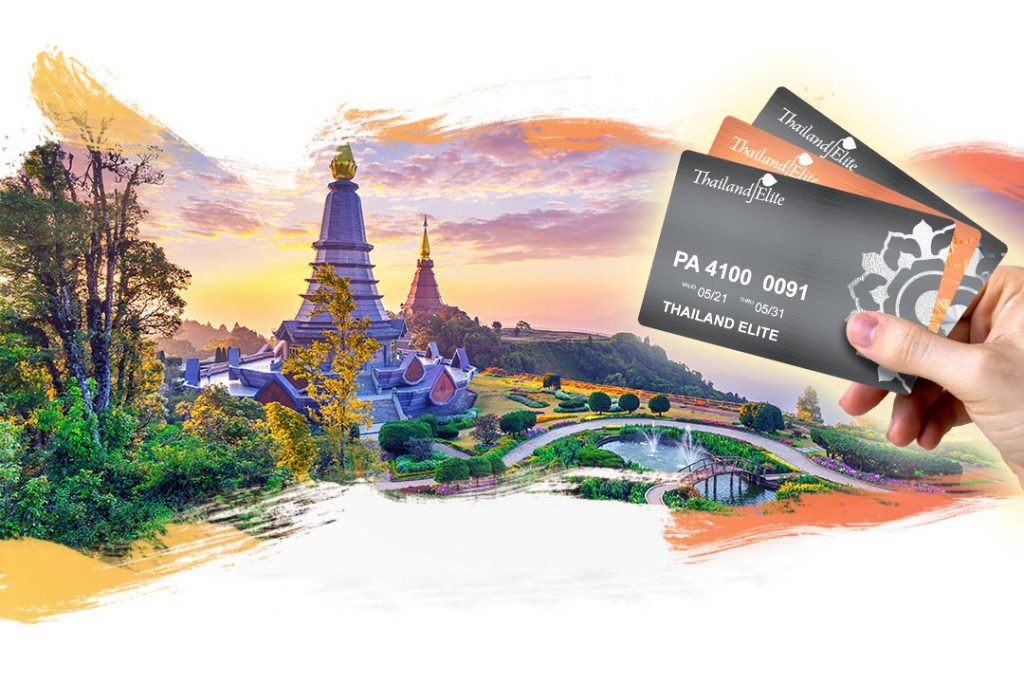Home

About Thai Visa News
Created in 2011, ThaiVisa News provides immigration information, immigration news, and travel guide and updates for people wishing to visit Thailand. The gateway to detailed information and requirements about Thai Visa application, whether researching travel opportunities, seeking information on travel restrictions, or looking for advice and assistance on how to move into Thailand. The comprehensive information of this website means that all answers to your immigration questions are at your fingertips.
Latest News
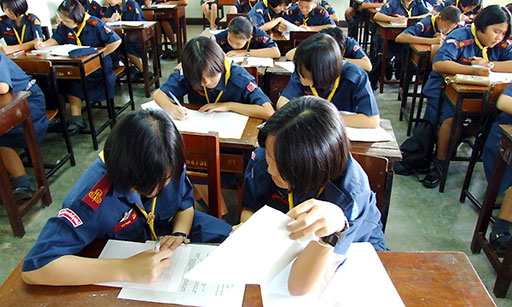
Recently, there has been news of an immigration crackdown in Thailand as Thai border officials are closing off the ability for non-Thais from entry into Thailand if they have had multiple entries in the recent past. This is an attempt at stopping visa runs for foreigners who attempt to stay in Thailand without going through the traditional long term visa process.
With the visa runs being closed off as an alternative for bypassing the Thai immigration system, many foreigners have been moving toward obtaining a Non-Immigrant Education (ED) visa so that they can remain in Thailand. The ED visa allows foreigners to stay in Thailand while they are attending school.
The non-Thai that is enrolled in a Thai educational institution, a foreigner can enroll in a Thai education institution and apply for a 12 month education visa. Currently, the definition of an educational institution is amorphous. The type of educational institutions range from international university degree courses, Muay Thai boxing schools, Thai language schools, cooking schools and even meditation courses. The only requirement is that the educational institution be certified and recognized by the Thai education ministry.
The benefits of an ED non-immigrant visa is attractive to many non-Thais who would like to stay long term in Thailand but do not fit in the other visa categories. With any attractive option, there are some foreigners and faux educational institutions who abuse the ED non-immigrant visa. Some ED visa holders might sign up for a yearlong Thai language course but never attend classes. And there have been some "educational institutions" who don't conduct any classes but are essentially ED visa mills.
Thai authorities understand how some ED visa holders and faux educational institutions abuse the system. There have been recent steps in cracking down on visa abusers. Authorities will have a random check of schools to ensure that ED visa holders are attending classes or even if there are actual classes. Some ED visa holders will be given impromptu Thai language tests if they have been in a Thai language program for multiple years. Thai authorities have also looked into instituting minimum course requirements to ensure the integrity of the program.
New regulations will be introduced in the fall of 2014. The new regulations proposed that an ED visa will only be good for one year if they are studying the same course or subject. For example, if someone has been studying a Thai language course for multiple years. Under the previous regulations, the ED visa can be used for up to five years as long as the student extended their stay every 90 days at the local immigration office. The new regulations will require the ED visa holder to leave Thailand and obtain a new ED visa at a Thai consulate at a foreign country to reenter Thailand. In addition, the new ED visa will require proof of income to ensure that the non-Thai ED visa holder has the financial means to support themselves while in Thailand.
Thai visa regulations is constantly in flux. Prior to applying for a non-immigrant visa or a long stay visa in Thailand, please contact a Thai immigration specialist.
See other types of Thai visa you can apply for for a longer term stay.
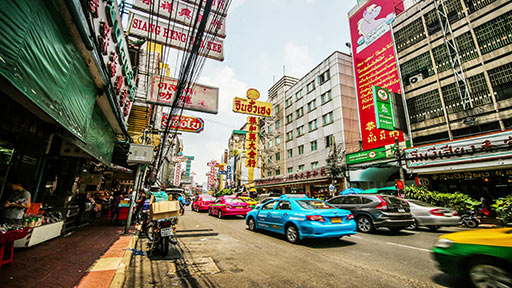
There has recently been news of a visa crackdown in Thailand as Thai border officials are closing off the ability for non-Thais from entry into Thailand if they have had multiple entries in the recent past. This is an attempt at stopping visa runs for the purpose of bypassing Thai immigration law. The crackdown has started at land border crossing and will be extended to international airports on August 12, 2014.
A visa run is for nationals of countries who do not require a visa to enter Thailand. Thailand allows citizens of multiple countries around the world to enter the country without a visa for a fixed period of time. The fixed period ranges from 15 to 90 days. If the foreigner wants to remain in Thailand beyond the granted period, they can go to the immigration office and apply for a tourist extension.
Some foreigners do not want to go through the bureaucratic process or fear that an extension may not be granted. These people go on a visa run where they crossed over a local border checkpoint and re-entered Thailand to get a new period of stay. For some, the visa run option is no longer viable.
The Thai government has decided to stop visa runs for people who use the automatic extensions to live in Thailand for an indefinite period. Tourist who come to Thailand who visit border countries will not be prevented from re-entering Thailand as long as they have proof of their short term stay including their itinerary. However, if the immigration officer believes that the foreigner has stayed in Thailand too long on a tourist visa, the officer may bar the foreigner from entering Thailand and the foreigner might be blacklisted.
For foreigners who want to stay in Thailand for the long term, what are their options?
Business (Work) Visa - Non-Immigrant B visa
The foreigner can invest in Thailand and start a business. Foreigners entering on a Non-Immigrant B visa will initially be granted a period of stay in Thailand for up to 90 days. The business visa has documentary requirements to prove that the foreigner is entering Thailand for business or investment purposes. The period of stay can be extended for additional one year periods depending on the discretion of the officer. Through the Non-immigrant B visa, the foreigner may be able to obtain a work permit.
Retirement Visa - Non-Immigrant O-A Visa
If the foreigner is over 50 years old, does not want to work, and has 800,000 baht or a monthly income (pension) of 65,000 baht or more, the foreigner may be able to obtain a retirement visa. The retirement visa or the Non-Immigrant O-A visa provides the foreigner a one year period of stay which may be extended annually for one year periods depending on the discretion of the officer.
Spouse Visa – Non-Immigrant O Visa
If the foreigner is married to a Thai national, they can apply for an accompanying spouse visa. The foreign national must submit evidence of being married to a Thai national including the original marriage certificate, the spouse’s Thai ID, and household registration. The original visa will entitle the foreigner to enter Thailand on a three month visa. For an extension, the foreigner will have to show proof of 400,000 baht in a Thai bank account or joint income of a minimum of 40,000 baht per month.
Education Visa – Non-Immigrant ED Visa
The foreigner can enroll in a Thai education institution and apply for a 12-15 month education visa. There is a quarterly requirement to make a trip to the immigration office to submit evidence of continued enrollment. The education visa can be renewed up to five years. There are a number of quality educational institutions with international programs in Thailand. Other qualified educational programs include Thai language school or even Thai boxing. The educational institution must be certified and recognized by the Thai department.
All of the above options are complex for individuals who do not have experience dealing with the Thai bureaucracy or individuals who cannot read or understand Thai. It is recommended that those who apply for the above visas seek the assistance of an experienced professional.
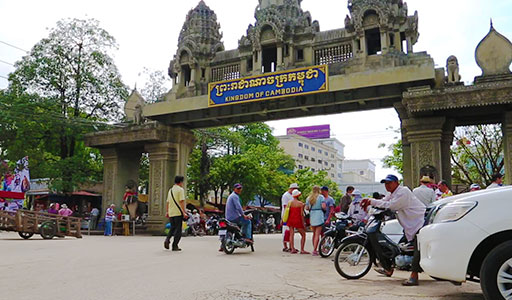
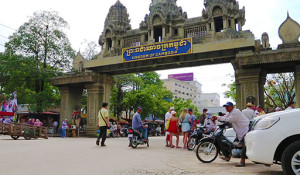
Reports of entry refusals in Thailand surfacing in many news outlets and online forums have steadily mounted border insecurity among tourists. Adding to their anxiety is the fact that many of those tourists who have been denied border entry were holding a valid tourist visa. As a result, the issue on having the assurance of successful entry to Thailand without the hassle of being stopped at the immigration has become a major concern.
The regulation imposed following the crackdown is rather deemed as a stricter implementation of existing rules towards people who, for several times, express the intent to travel to Thailand on a tourist visa. But that does not seem to be the case from the perspective of the embassies and consulates in many countries where a person can apply for a tourist visa as long as he can prove that the purpose of his travel is tourism.
Factors that Immigration Officers Weigh at the Border
Looking at the recent incidents of refused border entries, it appears that some border checkpoints observe a more discerning regulation in allowing people into Thailand. For instance, an officer at the Sungai Kolok border checkpoint said that they no longer allow passport holders from Russia, Laos, Vietnam and South Korea to enter Thailand through their checkpoint and provided a suggestion to go to Kuala Lumpur and fly to Thailand instead.
Other border checkpoints in Thailand may be less restrictive at this time but will likely follow the more stringent rules if the government directives continue.
While the disposition of an immigration officer in allowing border entry may be sometimes unpredictable, we can contemplate on the common denominators of denied border entry incidents and arrive at a logical conclusion on the factors being considered:
- Foreigners with previous history of multiple visa exemption entries.
- Passport with recent back-to-back issuance of tourist visa.
- Individuals who have acquired extensions on their visas for several times in the past year or so.
Points to be Considered
Having a valid tourist visa may not completely guarantee successful entry at the border. Here are some recommendations that will help tourists get the entry approval from an immigration officer:
- Make preparations for your supporting evidence of your short term visit - like having an onward travel ticket, hotel reservations and proof of sufficient funds, that might be asked by an immigration officer.
- Anticipate questions from immigration querying about the purpose of your travel to Thailand.
- Lastly, know the location of where you plan on crossing the border, ensure that someone knows where you plan on crossing, and prepare contingency travel plans in the unlikely event that entry through the border is not granted.
If you want to stay or work in Thailand, procuring the proper visa will allow you to bypass the issues presented by the latest immigration policies. Securing a long term visa under a category where all qualifications are met and all requirements can be obtained will give non-tourist peace of mind.
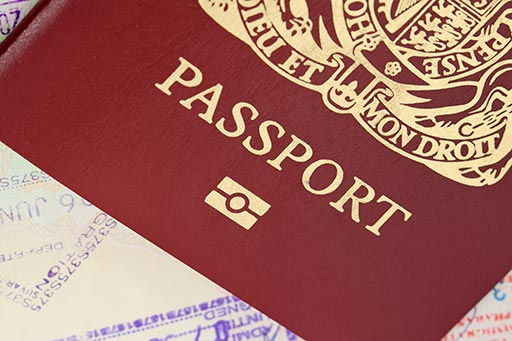
On average, there are over 800,000 UK citizens who visit Thailand every year. The kingdom of Thailand has been known, notably, for its unique and lively culture, distinctive cuisine and stunning beaches and mountains. Hence, it is no surprise that Thailand has been consistently the top choice by many as tourist destination in all countries across the southeast Asia. While nationals of other western countries are allowed to take pleasure in doing a yearlong trip to Thailand solely for the purpose of tourism, the regulation as governed by the Thai consulates in the UK maintains a divergent policy.
Since after the implementation of stricter rules in Thai embassies at the beginning of this year, UK citizens are no longer offered with the one-year multiple-entry Thai visa when applying from the UK. Only under certain circumstances (when all qualifications are met) can they apply for a non-immigrant one-year term visa to Thailand which can be for any of the following basis:
- Doing business;
- Working;
- Studying;
- Accompanying a Thai spouse; or
- Retiring in Thailand.
If the applicant wants to travel to Thailand for the purpose of tourism and for an intended period which cannot be sufficed by the 90-day duration of a typical Thai tourist visa, the popular option to majority is the triple-entry tourist visa.
What is Triple-Entry Tourist Visa?
The triple-entry tourist visa is not quite different from the other tourist visa types, except only that this visa is valid for six months as compared to the single and double-entry visas of which validity is only three months for both. With the Triple-Entry visa, the holder is permitted to stay for up to 60 days per entry. Each entry can be extended for one month and, therefore, the total period of stay by an applicant can be maximized to a total of nine months as shown in the illustration below:
[2 months (period of stay) + 1 month (extension)] x 3 (entries) = 9 months total
The application for the one month extension per entry is done in any of the immigration offices in Thailand on or before the 60th day of stay. The cost of visa extension is priced at 1,900 baht at the moment. In addition, tourist visas can also be converted or changed to a non-immigrant O visa inside Thailand, whether it be for marriage or for retirement purpose.
Overview of the Triple-Entry Tourist Visa application
It is best to apply for the visa at least three weeks prior to the intended travel date to Thailand. UK citizens and even foreigners who are currently in the UK (except those who cannot apply for a Thai visa outside their home countries) can apply for the visa at the UK embassy in London. As observed in recent months, however, consulate generals are more relaxed in issuing tourist visas in other Thai embassies such as the one in Hull and Birmingham.
Below is an overview of the application process:
- Fill out the Tourist visa application form.
Visa form can be obtained from any of the Thai embassies mentioned above. - Select the option in the form that says triple entries.
- Submit the form with your valid passport and two passport-size photos.
Other documents may be required by the consulate official, so it is best to contact them before lodging the application. - Pay the application fee.
Currently, the cost per entry for the tourist visa is 25 GBP. The triple-entry visa, therefore, will cost 75 GBP total.
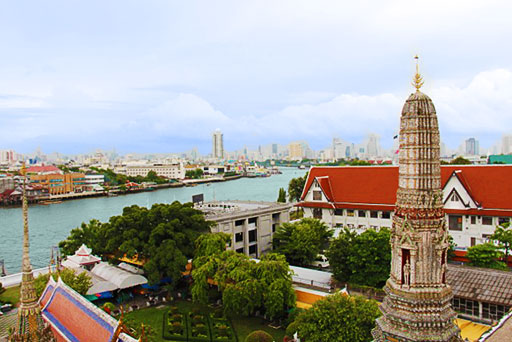
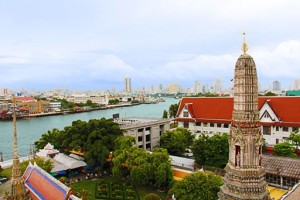 Photo by Eric John. [/caption]
Photo by Eric John. [/caption]The world was watching when the Royal Thai Armed Forces enforced martial law in Thailand on May 22nd of this year which is necessitated by the entire situation in the country, according to the Army chief, following six months of political turmoil and mass rallies. Shortly after this declaration, many protest sites and important intersections in Bangkok were stationed by the military and a night-time curfew was then imposed in the country.
This ruling consequently prompted travel advisories from different governments all across the globe and, thus, somehow stirred up tension to many. A number of countries broadcasted strong alert on the coup and urged their citizens to shelve trips and cancel unimportant visits to Thailand. As a result, the hard-pressed Thai tourism was threatened to experience yet another blow.
Thailand now in actuality since the martial law was invoked
In contrary to what the others are anxious about, the situation in many parts of Thailand has been very safe and secure since the imposition of martial law. What others predicted as a potential threat to the welfare of the general public actually turned out to be quite the opposite. During the thick of unrest in the politics, majority of Thai locals have remained spirited and most establishments in and outside the city of Bangkok stayed open and carried out their businesses as usual. What’s more, transportation means in all parts of the country stayed almost unaffected at daytime and until before late night during when curfew was just initially started.
While the plan to revoke the martial law in place may still be indefinite at the moment, the conditions in Thailand had been observed to have returned to normal. And on the 13th of June 2014, the junta decided to lift the enforcement of curfew in the country.
Planning to travel to Thailand now?
Thailand has been a favorite getaway by the westerners and many foreign travelers as the country never fails to offer culture, retail and great tourist spots. Consider the following reminders if you are planning to take a trip to Thailand or are already inside the country.
Be equipped
To avoid the hassle in the immigration when you arrive in Thailand, make sure that you have prepared all travel requirements beforehand. This may include any or all of the following:- Passport
- Airline or travel tickets
- Sufficient money or funds (At least 10,000 baht per person)
- Hotel bookings or proof of accommodations.
Once you are inside Thailand, always remember that a valid passport or a travel document must be carried at all times when you are traveling anywhere. Keep in mind the validity of your stay by referring to your visa or the immigration stamp (if you are exempted for a visa) on your passport to avoid overstay consequences. (See the list of countries under visa exemption rule here.)
Be vigilant
Do not take part in public gatherings which are illegal under martial law. Although demonstration sites may appear to be relatively calm, it does not eliminate the possibility of a violent crackdown bursting out for whatever reason, and you would certainly not want to get trapped in such situation when that happens. So as much as you can, try to avoid those sites and nearby areas.Be updated
Always be in the know. As a tourist, it is still necessary to pay attention to the media reports on what’s going on especially in the political situation in Thailand. To ensure safety in the course of your travel to the country, I would suggest not to take travel advisories lightly.


Among the tourists and foreign immigrants in Thailand, the issue on visa run crackdown is basically what has shifted great interest lately. Many people are now becoming more and more anxious due to the uncertainties it caused to the general foreign travellers, especially those who are doing frequent trips in and out of Thailand.
According to an Immigration official, what emerges as a crackdown to many are regulations that have long existed and are only more strictly applied. This is to further address the growing numbers of crimes that involve foreigners as well as the number of illegitimate foreign workers inside the country.
For several years now, the Kingdom of Thailand has become a home to thousands of location-independent workers who have more or less made the country their temporary residence while taking part on different job opportunities. The immigration officials have emphasized their concern on foreign nationals, particularly the South Koreans, Vietnamese and Russians, who are extending their stays through visa runs. Many of them are engaged in professions that are supposedly reserved for Thais and the Thailand government does not like the idea that they are actually stealing jobs from the locals.
What every foreign traveller should knowUntil the second week of May of this year, tourists can easily obtain visa exemption stamps by doing border runs on the same day at the usual border crossings in Thailand provinces. The new severe measure in the immigration rules, however, is making it more challenging to visa runners since higher level of restrictions and even prohibitions are now enforced. (See the list of countries under visa exemption rule here.)
The order, which should come into effect at all Thai immigration land border checkpoints and airports after August 12, states that tourists of certain nationalities are entitled to the visa exemption three times before they get a passport stamp "O-I" (which indicates "out-in" from/to Thailand). The issuance of visa is always at the discretion of the immigration officer and even a foreigner who completed just one visa run can have his passport stamped with "O-I".
Reminders to passport holders who are under the visa exemption schemeKeep in mind that a foreigner may be refused re-entry if he's not able to satisfy the border control officials on his reason for travel. After all, visa restrictions, requirements and even the application process may vary depending on location and nationality.
To avoid the hassle with immigration, it is very important to consider making adequate preparation on the requirements listed below:
- Passport valid for at least six months following the departure date.
- Onward ticket out of Thailand.
- Sufficient travel funds equivalent to at least 10,000 baht per person or 20,000 baht per family accordingly.
Thai Elite Visa
Thailand Elite visa is a special visa aimed for high networth businessmen, digital nomads, retirees, investors, high income individuals, and families looking to move in to Thailand. The Elite member or card holder has special privileges such as VIP treatment at the airport, exclusive spa and golf courses, special discount at major department stores and shopping malls, elite personal assistance, and many more. To learn more if Thailand Elite Visa is the most suitable long term visa for you, just click the link below.
